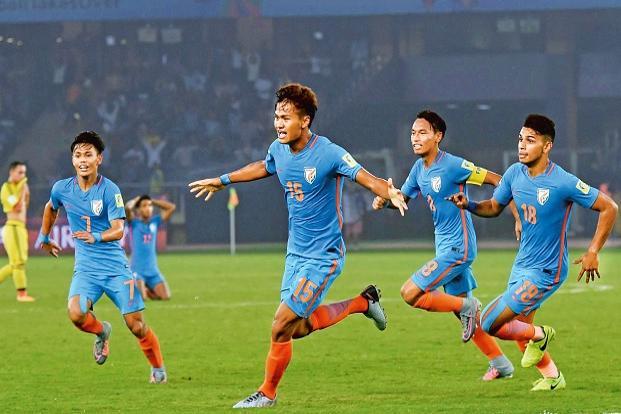Video assistant referee system (VAR) replays can be displayed to enthusiasts through this season’s FA Cup semi-finals at Wembley if a decision is overturned. VAR’s decision will be announced on the large display screen before a “definitive video clip” is proven. It comes after criticism that choices are sometimes uncertain for enthusiasts inner stadiums. The Football Association stated it’d provide “clarity” and “transparency” for those in attendance.
“The FA Cup has been at the leading edge VAR testing system in England, and that is the subsequent step in its improvement,” stated Andy Ambler, the FA’s director of expert recreation family members. Replays of incidents reviewed using VAR had been shown on huge monitors at the 2018 World Cup in Russia. VAR has been used frequently in FA Cup ties over the last seasons, making its debut in English soccer in Brighton’s third-round win over Crystal Palace on eight January 2018. It can be in use for both semi-finals this weekend in addition to the very last on 18 May. Manchester City faces Brighton on Saturday earlier than Watford plays Wolves on Sunday.

Last month, Swansea players lamented the dearth of VAR all through their FA Cup region-final exit as Man City’s equalizer become a contentious penalty, and their triumphing purpose seemed to be offside. VAR became no longer in use, no matter the Liberty Stadium being geared up for it. The gadget is best being used in this season’s FA Cup at Premier League grounds. It may be used within the Premier League from the subsequent season.
“It hurts loads. It is up to now from truth to think a referee drives home singing along to music upon getting a massive choice incorrect within the Premier League.” The strain on Premier League referees has by no means been greater, with cameras that specialize in each flow, pundits thinking choices and an army of lovers condemning every mistake on social media. And that’s before the brunt of criticism from the stands has abated. BBC Sport speaks to former Premier League referee Bobby Madley and 1998 World Cup’s very last assistant referee Mark Warren to discover what things are genuinely like for officials at the highest stages of the sport and how they cope with the abuse acquire.
‘Sometimes you get an intestine feeling you may have made a mistake’ “Refereeing may be a lonely location from time to time,” says Madley, who officiated 19 Premier League suits last season before leaving the UK to stay in Norway. The 33-12 months-antique, now resuming his career from Norwegian football’s lower reaches, had taken charge of extra than a hundred top-flight video games before his departure. And he says that while little has modified on the pitch on account that he graduated to the pick out group of referees in 2013, interest in it has made things harder. “I don’t suppose pressure from players and managers has improved due to the fact you may by no means please 22 people,” he says. “As a referee, you remember that. You also recognize that humans’ livelihoods are at stake, and although one decision would not get any person sacked or relegated, it could strictly contribute.
“Scrutiny from the media has extended a hell of a lot. There are greater cameras, the best is clearer, the era is better, and those want greater records. They don’t just need highlights of goals any extra. “We work with sports psychologists, and if you decide occasionally, you get a gut feeling you may have made a mistake. You apprehend the response from gamers, managers, the crowd and think: ‘I might have got this wrong.'” While stress in football is felt from the boardroom down to players, Warren, who describes the 1998 World Cup final as “the last,” says the intellectual pressure on officers is “excessive
.” You can experience it, absolute confidence approximately it, in particular on the most important stages,” the fifty-nine-yr-vintage provides. “You are so absorbed on one element you try to detach yourself from the whole lot else.” ‘It hurts a lot’ – managing mistakes Refereeing errors appear, even at the best stage. Howard Webb famously failed to ship off Netherlands midfielder Nigel de Jong for a project similar to a kung-fu kick on Spain’s Xabi Alonso in the opening minutes of the 2010 World Cup final. In the 2006 match, fellow English referee Graham Poll booked Croatia defender Josip Simunic 3 times in opposition to Australia before eventually sending him off.
There have also been masses of improper identification instances – while sending gamers off – ‘ghost goals’ and debatable penalty decisions. And offside calls are also an everyday speak me factor, with adjustments to policies making the lifestyles of a respectable even more “demanding,” in line with Warren. “The lawmakers desired the game to be extra open, but as an assistant, you are taking your line off defenders – so if a forward is 10 yards past them but not energetic until the second phase, you have got an actual task to get the selection right,” he says.
Madley says big mistakes often produce an emotional fallout that “hurts a lot.” “It is up to now from the truth and untrue to suppose a referee just drives domestic singing along to tune once you have a wide choice wrong inside the Premier League,” he provides. “Your expert reputation is hurt; however, I’m harm as a person as nicely. I don’t need to make incorrect selections or have a bad impact. “The stronger referees positioned it to one facet and consider the following selection due to the fact there may be a snowball impact. If you are not concentrating a hundred%, the chance is you get the following one incorrect, and abruptly you panic. Two wrong decisions can effortlessly change into three.”








